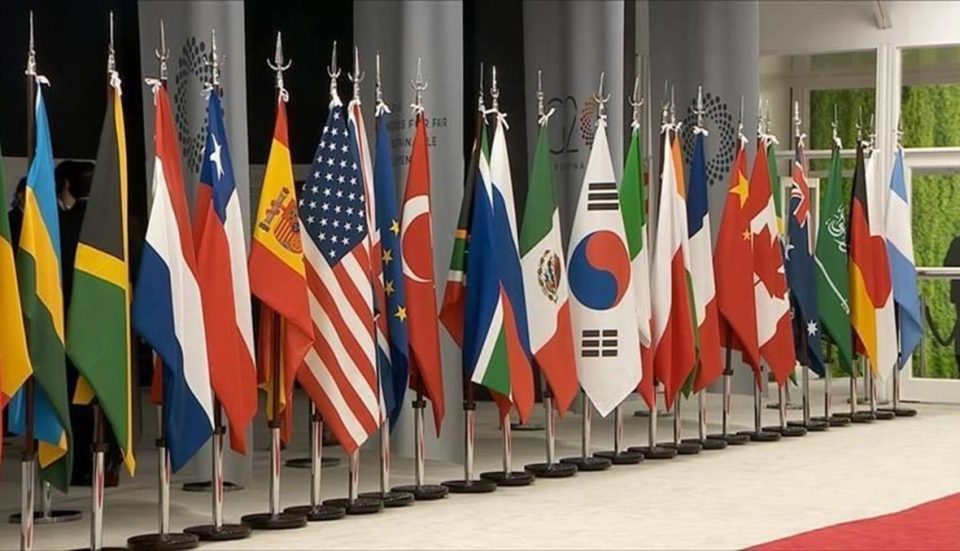FALCONPOWERS – The most prominent countries that directly and indirectly participated in the war in Gaza, according to a comprehensive compilation by more than 33 experts in military strategic analysis, including three Americans, as revealed by the Spanish website “Balagor,” are as follows:
United States: The experts confirm that the United States provided support to the Israeli army with tons of bombs and ammunition, as well as logistical support unprecedented since President Joe Biden’s first visit to Tel Aviv after the “Operation Guardian of the Walls,” which began with the movement of the aircraft carrier.

United Kingdom: The experts assert that the United Kingdom participated by providing military and intelligence support and assisting the Israeli military operation with three “Shadow R-1” surveillance aircraft.
France and Canada: Both countries directly participated in the first week of the military campaign in Gaza. However, according to experts, Israel’s direction shifted from self-defense to annihilation, prompting Canada to cut off military supplies and consider the Israeli army’s actions as genocidal against civilians in Gaza, rather than self-defense. France took similar steps.
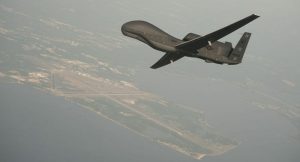
Egypt: The experts say that Egypt played a crucial role in the war but in an indirect, non-military, logistical manner. After Hamas’s operation on October 7th last year, the Egyptian government immediately closed the Rafah crossing and implemented a policy that made travel (exit and entry) nearly impossible for any Palestinian unless they paid a significant amount of money.
This amount ranged between $5,000 and $12,000, paid to a company called “Hala” located in Cairo, and the registration for travel is done through a representative of the traveler directly in Cairo.
In addition, Egypt was not a neutral party in the negotiations that took place in Doha and Cairo; sometimes Cairo supported the Israeli side, while at other times it supported the leadership of Hamas, according to a knowledgeable source involved in the slow and difficult ceasefire negotiations between the Israeli side and the leadership of Hamas, mediated by Egypt and Qatar.
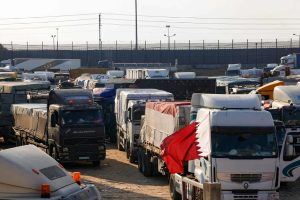
This political insider, who declined to reveal his name due to lack of authorization, clarified that the Egyptian side often defended the Israeli narrative and did not advocate for the Palestinian position. Furthermore, more than 7,000 trucks of food supplies and aid remained stranded over a distance of more than 5 kilometers from the Rafah border crossing, the sole gateway connecting the Arab Republic of Egypt with the Gaza Strip.
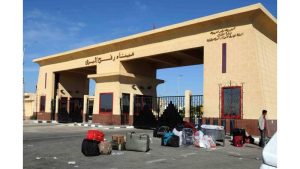
The Egyptian government claims that Israel prevents their entry, but it has recently become apparent that there are financial burdens similar to those imposed on Palestinians traveling, making it extremely difficult to deliver and move trucks towards the Gaza Strip. This is in addition to Israeli measures that target everything, which the experts see as an unjustifiable reason for a country that possesses the most powerful Arab army in the region.
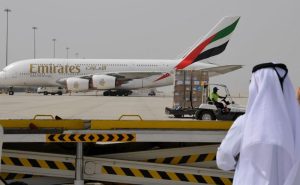
United Arab Emirates (UAE): According to the 33 strategic experts, the UAE played a prominent role in attempting to convey Israeli diplomacy to all Arab countries in an effort to absorb public anger before the start of the operation in Gaza. Additionally, the UAE provided Israel with massive quantities of goods and supplies, according to Israeli Channel 13.
Furthermore, all satellite channels broadcasting from the UAE were compelled to adopt a narrative that did not support resistance or Palestinians directly or indirectly. Among these channels were Sky News Arabia and Al Arabiya, which exaggeratedly embraced a narrative that cast doubt on the Palestinian side while exaggerating Israeli military strength and portraying its operations against Palestinians as exceptional and extraordinary.
Jordan: Experts consider Jordan’s role to be no less significant than Egypt’s due to the peace agreement signed with Israel. The experts believe that King Abdullah attempted, in one way or another, to distance himself from the appearance of normalization with the Israeli side by adopting a narrative of condemnation and political warnings.
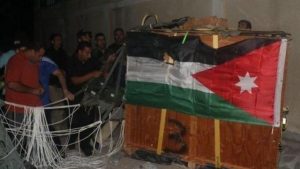
He also attempted to invent an idea of supporting Palestinians with Israeli-American approval, making Jordan the first country in the world to deliver aid through air drops. This aid consisted of some medical supplies for the Jordanian hospital team.
The Jordanian diplomacy aimed to convince the world of the necessity of the aerial drops and to avoid calls to open the Palestinian-Egyptian crossing, which has clearly become a prison gate for Palestinians. However, Jordan’s negativity emerged in its failure to take a firm stance and its attempts to suppress anyone demonstrating support for the Palestinian cause.And that is according to what was mentioned on the Spanish network.


